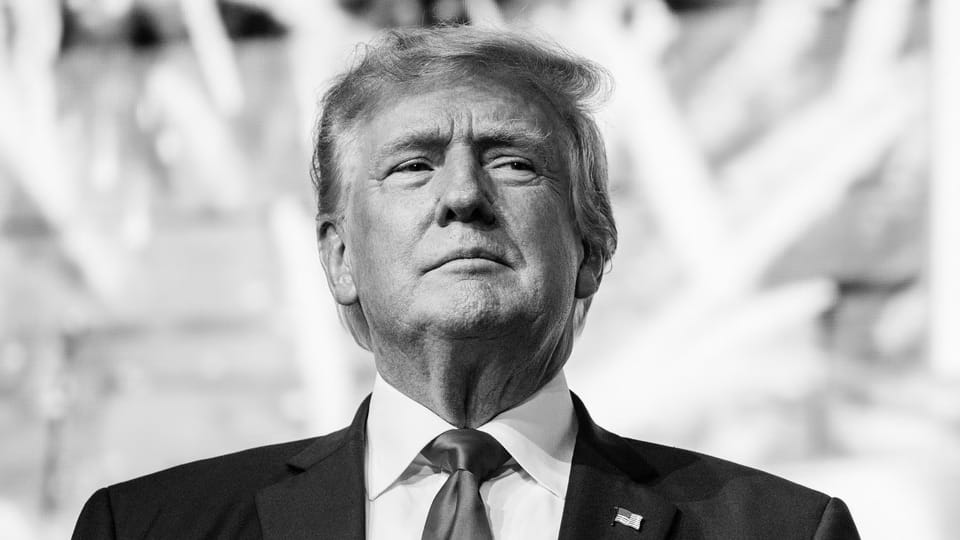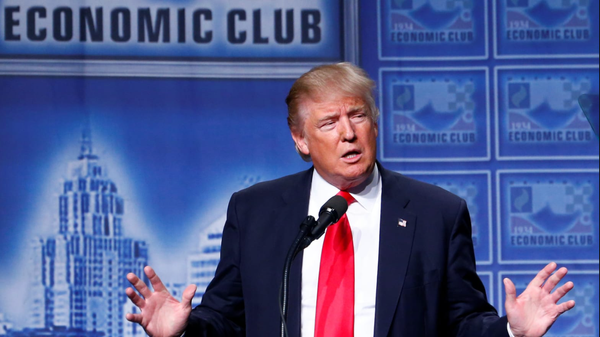OPINION: Trump 2.0: Convicted Leadership
By Gioia Bonifacio-Proietto ’25, Staff Writer; Edited by Georgia Trites ’25, Staff Editor

In America, the average felon can’t vote, but he can ascend to one of the most powerful positions in the world: President of the United States.
As billions of people around the world painstakingly eyed the polls on November 5th, the U.S. elected their 47th president: Donald J. Trump, a man with 34 felony counts, 6 bankruptcies, 2 impeachments, 1 conviction, and several cases of sexual predation.
As of this article being written, votes are still being counted in some states. What is clear, though, is that the Republicans crossed the threshold of 270 electoral college votes to win, ending up at 312, while the Democrats trailed behind at 226. Trump won in each of the seven swing states, whose importance cannot be overstated. The difference currently appears to have been just over 3 million votes, out of a total of over 150 million votes. With a trifecta government, the Republicans also won the Senate and the House – not to mention the conservative supermajority in the Supreme Court, a third of whose nine members were appointed by Trump himself.
During his election campaign, Trump promised several things that are worth reviewing. At a September town hall held in Michigan, Trump stated, “Our country in the 1890s was probably the wealthiest it ever was because it was a system of tariffs.” Tariffs are government-imposed taxes on imported goods that often raise the costs of consumer goods. They not only weaken geopolitical bonds, but they can also lead to shortages of commodities. In the nineteenth century, the U.S. was rife with economic inequality and high tariffs significantly destabilized its economy. One of Trump’s goals is to introduce tariffs of at least 10% on most foreign goods; Chinese imports could have tariffs of up to 60%. If Trump proceeds with the proposed tariffs, Americans can expect to see a significant increase in the cost of living, which was one of the main issues voters hoped to see resolved in the upcoming term.
Trump also stated that he would like to eliminate climate regulations. According to the BBC, during his first term as president, he “rolled back hundreds of environmental protections and made America the first nation to withdraw from the Paris climate agreement.” In his second term, it is likely that Trump will follow up on these rescindments, despite the Biden administration’s attempts to cut greenhouse gas emissions by over 50% by the year 2030.
Trump has also emphasized his unfounded cynicism surrounding electric vehicles and has vowed to “drill, baby, drill” in federal lands and the Arctic, claiming that it will ‘maximize renewable energy’ and ‘lower energy costs.’
Despite his disavowal of any association with Project 2025 (which some have dubbed a “fascist manifesto”),

the New York Times identified several significant ties between Trump and the document’s authors, including the fact that over 100 of its authors and contributors have, at one point or another, been affiliated with Trump – either through positions in his first administration or in one of his political campaigns.
Project 2025 is a massive document that details recommendations from a think tank called The Heritage Foundation for Trump’s second term, some of which include abolishing the Department of Education, restoring the nuclear family and doubling down on corporate interests. Consider the following statement from Project 2025: “The next conservative President must make the institutions of American civil society hard targets for woke culture warriors. This starts with deleting the terms [...]gender equity [...] reproductive rights, and any other term used to deprive Americans of their First Amendment rights out of every federal rule [...] and piece of legislation that exists.” Describing this objective as problematic would severely understate the crisis that will surely descend upon the rights and protections of the average American citizen.
Project 2025 is replete with radical right-wing ideology and moralism, parading under the façade of a return to a “golden age” in American history; while in reality, it is a dangerous reactionary document that aims to undermine the incremental steps towards equality made by social justice movements of the post-war era. The document’s express mandate is, quoting Trump himself, to “make America great again.” But when does going backwards ever constitute social progress? In 1972, former Supreme Court Justice Ruth Bader Ginsburg fought in the Supreme Court to establish that sex discrimination exists – it still does. Ignoring the social injustices that erode the civic constitution of any society can never make any nation great again – especially when the rights of every American were not (never) might be stronger here guaranteed in that “great” era.
Whether your political sympathies lie with the Republican or Democratic party, I urge you to consider the dangers that will follow as a result of this momentous election. For instance, Trump vowed to fire Special Counsel Jack Smith, the individual who indicted Trump on two counts, including his role to attempt to overturn the 2020 election results and his alleged misdemeanour involving classified documents. Trump claims that Smith “subjected him to a ‘political witch hunt.’” A 2023 article from The Economist described Trump as “the greatest threat” to his own country, especially because of his blatant disregard of diplomacy and disrespect for democracy. If re-elected, the article speculates, “Trump will wage war on any institution that stands in his way, including the courts and the Department of Justice ... Mr. Trump’s lust for a deal and his sense of America’s interests are unconstrained by reality and unanchored by values.” Trump’s refusal to adhere to the law showcases his fundamental and deep-seated belief in his apparent invincibility. This disposition is clearly worrisome when applied to fragile or tense geopolitical relations.
According to a senior at Ridley, “The election has sparked massive discussion across the USA and internationally, calling into question what America’s path forward is ... there’s basically no checks or balances against the Republican party anymore ... policies and laws may pass without the right amount of debate or opposition. This can impact everything from civil rights to international policies.” This point is not to be taken lightly, especially in the case of Roe vs. Wade and the increased possibility for unjust legislation to pass in Trump’s second term given his party’s trifecta government.
As much as America likes to proclaim its status as a progressive nation, it clearly was unprepared to elect its first female president. Instead, it elected the first felon president, by margins much more significant than those in the previous presidential election. Another senior student commented: “People are worried about Project 2025, as it would give Trump full control over the government ... he claims he only has “concepts of a plan” ... people are worried about the classical literature that would be banned with this project ... I personally am concerned about the violence that will come with him being President, as well as the lack of gun control he will bring.” These concerns are valid, and they underscore the fundamental question of how well equipped each candidate was to lead – what makes a convicted felon more appealing than an accomplished professional woman?
There is no doubt that the results of the 2024 election reflect America’s shifting political identity on a national and international level. While no one can be certain about what the next four years will look like, I think it’s safe to say that we will be revisiting the meaning of the word “great,” once again.




